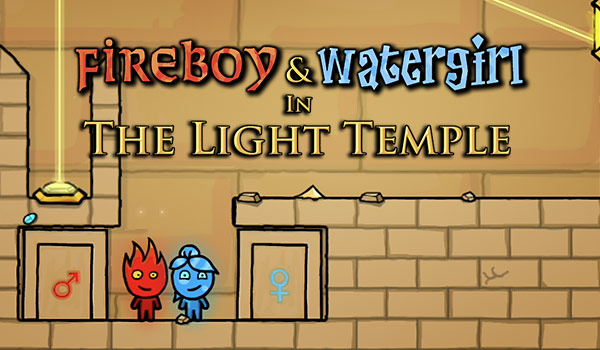Introduction: A Titan in the World of First-Person Shooters
Call of Duty (CoD) has dominated the global gaming industry for over two decades. Developed initially by Infinity Ward and published by Activision, the franchise started in 2003 with a focus on World War II battles and has since evolved into a multifaceted shooter series with modern warfare, futuristic combat, and battle royale formats.
From the gritty realism of Modern Warfare to the cinematic storytelling of Black Ops, Call of Duty has remained at the top by constantly evolving while staying true to its core identity: fast-paced action, cinematic campaigns, and tight multiplayer gameplay. In this article, we explore the franchise’s rich history, its changing mechanics, iconic titles, multiplayer design, and future trajectory.
1. The Early Days: A New Kind of War (2003–2006)
Birth of a Franchise
Call of Duty debuted in 2003 with a focus on realistic combat and AI squadmates. It distinguished itself from Medal of Honor by emphasizing team-based warfare, dynamic missions, and immersive sound design. The original trilogy (Call of Duty, Call of Duty 2, and Call of Duty 3) focused on World War II settings across Europe and the Pacific.
Impact and Reception
These early titles introduced players to intense, historically grounded combat. The critical and commercial success laid the foundation for a new benchmark in FPS design, with Call of Duty 2 praised for its visuals and gameplay realism at the time.
2. Modern Warfare Revolution (2007–2009)
The Game-Changer: Call of Duty 4: Modern Warfare
In 2007, Modern Warfare redefined the series — and the genre — by shifting to a modern setting. Its cinematic storytelling, gripping missions like "All Ghillied Up", and revolutionary multiplayer progression system made it a massive hit.
Sequels and Story Expansion
Modern Warfare 2 and Modern Warfare 3 expanded the universe with high-stakes action, controversial scenes, and unforgettable characters like Soap, Ghost, and Captain Price. The trilogy became legendary, selling millions and earning critical acclaim.
3. The Rise of Black Ops (2010–2015)
Darker Themes and Psychological Thrills
Developed by Treyarch, Black Ops brought Cold War espionage into the mix. With memorable missions and a darker narrative tone, it introduced mind control, government conspiracies, and Vietnam-era warfare. The series’ tone shifted from military realism to psychological drama.
Zombies Mode Takes Center Stage
The Zombies mode started as a bonus feature but became a core attraction. Featuring waves of undead enemies, hidden storylines, and celebrity voice actors, it offered co-op survival horror within the FPS genre.
4. Experiments and Futuristic Warfare (2013–2016)
From Jetpacks to Space Combat
With titles like Advanced Warfare, Infinite Warfare, and Black Ops III, the series ventured into futuristic combat. Players experienced exo-suits, wall-running, energy weapons, and zero-gravity battles.
Mixed Reception and Fatigue
While these games introduced mechanical innovations, many fans grew tired of the futuristic setting. Despite impressive visuals and ideas, Infinite Warfare received criticism for straying too far from the series’ roots.
5. A Return to Roots: World War II and Grounded Combat (2017–2019)
Call of Duty: WWII (2017)
Responding to fan demand, CoD returned to its World War II origins. Call of Duty: WWII emphasized boots-on-the-ground combat, historical missions, and realistic visuals. While nostalgic, it faced criticism for lacking innovation.
Modern Warfare Reboot (2019)
The Modern Warfare reboot was a breath of fresh air. Reimagining classic characters and grounded storytelling, it introduced the new IW engine, realistic gun mechanics, and cross-platform multiplayer, breathing new life into the franchise.
6. The Warzone Phenomenon (2020–Present)
Entering the Battle Royale Arena
Call of Duty: Warzone, launched in 2020, brought the franchise into the battle royale genre. Offering free-to-play access, 150-player lobbies, and an expansive map, it quickly attracted millions of players worldwide.
Warzone Integration and Seasonal Model
Tightly integrated with Modern Warfare, Cold War, Vanguard, and Modern Warfare II (2022), Warzone introduced seasonal content, live events, and narrative arcs that expanded the CoD universe.
7. Multiplayer Evolution
Customization and Loadouts
CoD multiplayer is renowned for its Gunsmith system, killstreaks, perks, and tight gunplay. Players can customize every aspect of their weapons — from optics to barrels — to suit various playstyles.
Modes and Competitive Play
Modes like Team Deathmatch, Domination, Search & Destroy, and Hardpoint keep multiplayer fresh. CoD also has a strong presence in esports through the Call of Duty League (CDL).
8. Campaign Design and Storytelling
From Linear Missions to Dynamic Choices
While campaigns were once linear, recent entries (especially Black Ops Cold War) feature branching paths, player choices, and multiple endings.
Iconic Characters and Moments
CoD has delivered countless iconic moments:
-
The nuke scene in Modern Warfare
-
“No Russian” mission in Modern Warfare 2
-
The interrogation room in Black Ops
These moments pushed the boundaries of interactive storytelling.
9. The Future of Call of Duty
Annual Releases and Studio Rotation
With Infinity Ward, Treyarch, Sledgehammer Games, and Raven Software rotating development, Call of Duty maintains a yearly release cycle. This ensures variety but can occasionally lead to burnout or lack of polish.
Upcoming Projects
-
Call of Duty: Black Ops Gulf War (rumored for 2024)
-
Warzone Mobile for handheld gaming
-
Deeper Warzone 2 integration and engine consistency
-
Continued focus on live-service and narrative evolution
Fan Demands for the Future
The community hopes for:
-
Better campaign cohesion
-
Fewer bugs and more optimized updates
-
Enhanced anti-cheat systems
-
Return of classic maps and remasters
Conclusion: Call of Duty's Enduring Legacy
From its humble beginnings as a World War II shooter to becoming a billion-dollar gaming juggernaut, Call of Duty has cemented its place in video game history. Through constant innovation, a blend of cinematic storytelling, intense multiplayer, and large-scale battle royale warfare, the franchise has managed to stay relevant in an ever-changing industry.




























